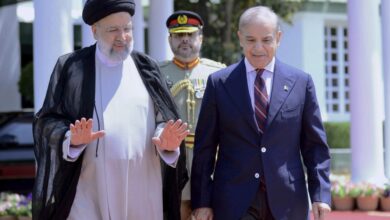Can’t interfere in employment agreement between pilots, Akasa Air: DGCA to HC

Can’t interfere in employment agreement between pilots, Akasa Air: DGCA to HC
The Directorate General of Civil Aviation (DGCA) has informed the Delhi High Court that it does not have the authority to interfere in the employment agreements between pilots and Akasa Air. Akasa Air had sought action against pilots who resigned without fulfilling their notice period obligations.
According to the DGCA, it would be in the best interest of all parties involved, particularly the petitioner airline (Akasa Air), to adhere to the regulations mandated by the aviation regulator. This includes maintaining a limited flight schedule if the airline does not have a sufficient number of pilots to ensure the continuity of flight operations.
The DGCA’s response comes in light of a petition filed by Akasa Air, which has expressed concerns about its operational stability following the sudden and unexpected resignation of 43 pilots who departed the airline without serving the mandatory notice period. The airline’s plea highlights the challenges it faces in managing its operations amidst this crisis.
Justice Manmeet Pritam Singh Arora had reserved the order on Akasa Air’s plea on September 19, instructing the concerned parties to submit their written submissions.
Akasa Air, along with its CEO Vinay Dube, had approached the high court on September 14 with their petition. In their petition, they sought a directive from the DGCA to take coercive action against the pilots who had resigned without fulfilling their notice period obligations. The airline and its CEO expressed their concerns regarding what they viewed as irresponsible actions by these pilots and were seeking legal remedies to address the situation.
)
The Directorate General of Civil Aviation (DGCA) has responded to Akasa Air’s plea, reiterating that it lacks the authority or delegated power to intervene in employment contracts and decisions involving airport operators, airline operators, or other stakeholders. The DGCA emphasized that it cannot interfere in the employment agreement between airlines and pilots, as these agreements typically contain mechanisms for pilot termination.
The DGCA has urged the court to dismiss the airline’s petition with costs, underscoring its limited role in employment disputes between airlines and their pilots.
Regarding Akasa Air’s assertion that it had to cancel approximately 600 flights since June due to pilot resignations, the DGCA stated that the airline had not provided any documents or reasons for these cancellations. The regulator clarified that it maintains records of flight cancellations, primarily due to operational, commercial, technical, or weather-related reasons, but it had not received information regarding canceled flights as claimed by the petitioner.

The DGCA also provided specific data, stating that according to the details submitted by Akasa Air, 1.17 percent of flights were canceled in August 2023. This data offers insights into the airline’s operational challenges during that period but does not address the specific reasons for pilot resignations and their impact on flight cancellations.
The DGCA clarified its role in ensuring passenger protection in the event of major flight cancellations, including those resulting from pilot resignations. The regulator emphasized that it aims to minimize inconvenience to passengers and provide appropriate protection during flight disruptions. However, it does not have the authority to dictate the terms of employment contracts between private parties, such as airlines and pilots.
Meanwhile, the Indian Pilots Guild and Federation of Indian Pilots, in their written submissions, opposed Akasa Air’s petition. They argued that the airline was engaging in forum shopping by pursuing multiple litigations, given that it had already filed a civil suit against the pilots in the Bombay High Court. The Federation of Indian Pilots contended that Akasa Air had not demonstrated that the alleged cancellation of 600 flights in August was solely attributable to pilot resignations and considered the claim as unsubstantiated.
Both pilot organizations emphasized that the DGCA had no standing to dictate contract terms between private parties. They noted that the notice periods specified in employment agreements between pilots and airlines were under challenge before the high court, and the status of the Civil Aviation Requirement (CAR) 2017 was that of executive instructions, as determined by the Supreme Court.
According to the DGCA, any violation of the terms of employment contracts is a matter for the parties involved and falls outside the purview of the DGCA in terms of the doctrine of privity to the contract. It reiterated that parties are free to establish their notice periods based on mutual agreement, and the DGCA does not have a role in determining these terms.
Akasa Air, which commenced its commercial flight operations on August 7, 2022, has encountered challenges due to the resignation of several pilots. The airline, operated by SNV Aviation Private Limited, operating under the brand name Akasa Air, has sought the intervention of the DGCA to take coercive action against pilots who have not adhered to the mandatory notice period requirements outlined in the Civil Aviation Requirement (CAR) 2017.
In its petition, Akasa Air expressed its inability to secure an effective remedy to protect itself and the public from what it considers the “reckless and irresponsible” actions of certain pilots. The airline conveyed its deep distress over the “callous” conduct of these pilots, whose actions it believes directly contravene the CAR 2017 and the contractual agreements they have with the company.
The airline argued that each “illegal” resignation, which has occurred without consequences, encourages other pilots to follow suit. This is evidenced by the increasing number of pilot resignations since the first case in June 2023.
Akasa Air stated that its officials have engaged with DGCA representatives on multiple occasions to explain their challenges but received no response or assurance from the authorities. The airline also submitted a representation to the Minister of Civil Aviation, but it claims that no action has been taken to address the situation.
As a result of the pilot resignations, the airline contends that significant difficulty and inconvenience have been inflicted upon the public. This includes numerous instances of last-minute flight cancellations, delays, and grounding of flights. Akasa Air asserted that it finds itself in this precarious situation despite scrupulously adhering to all applicable regulations and the terms of its agreements with the pilots.






